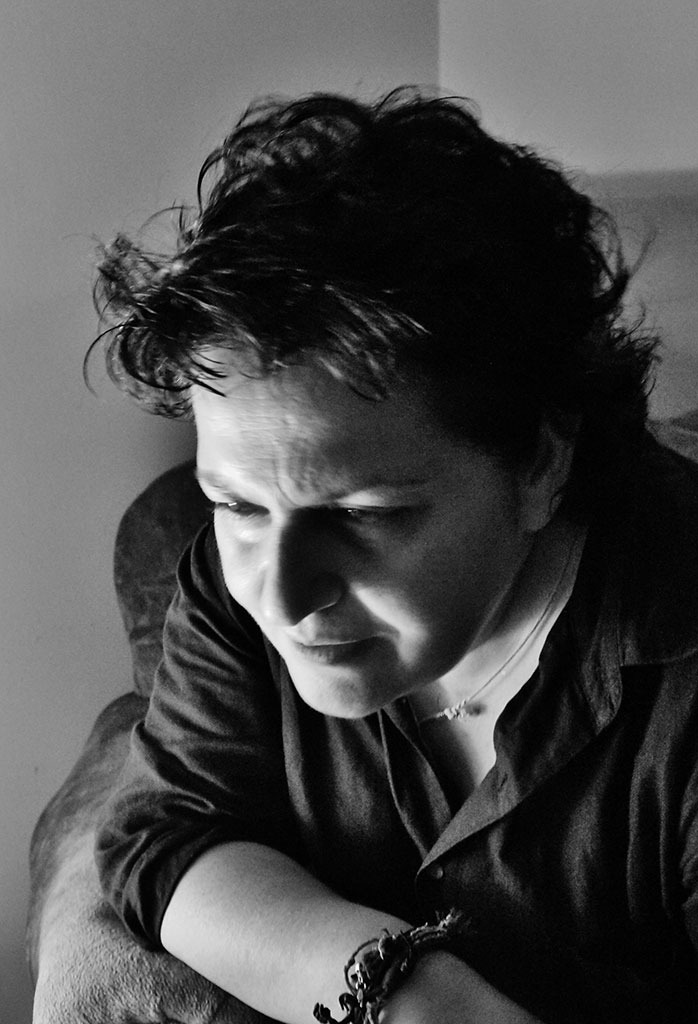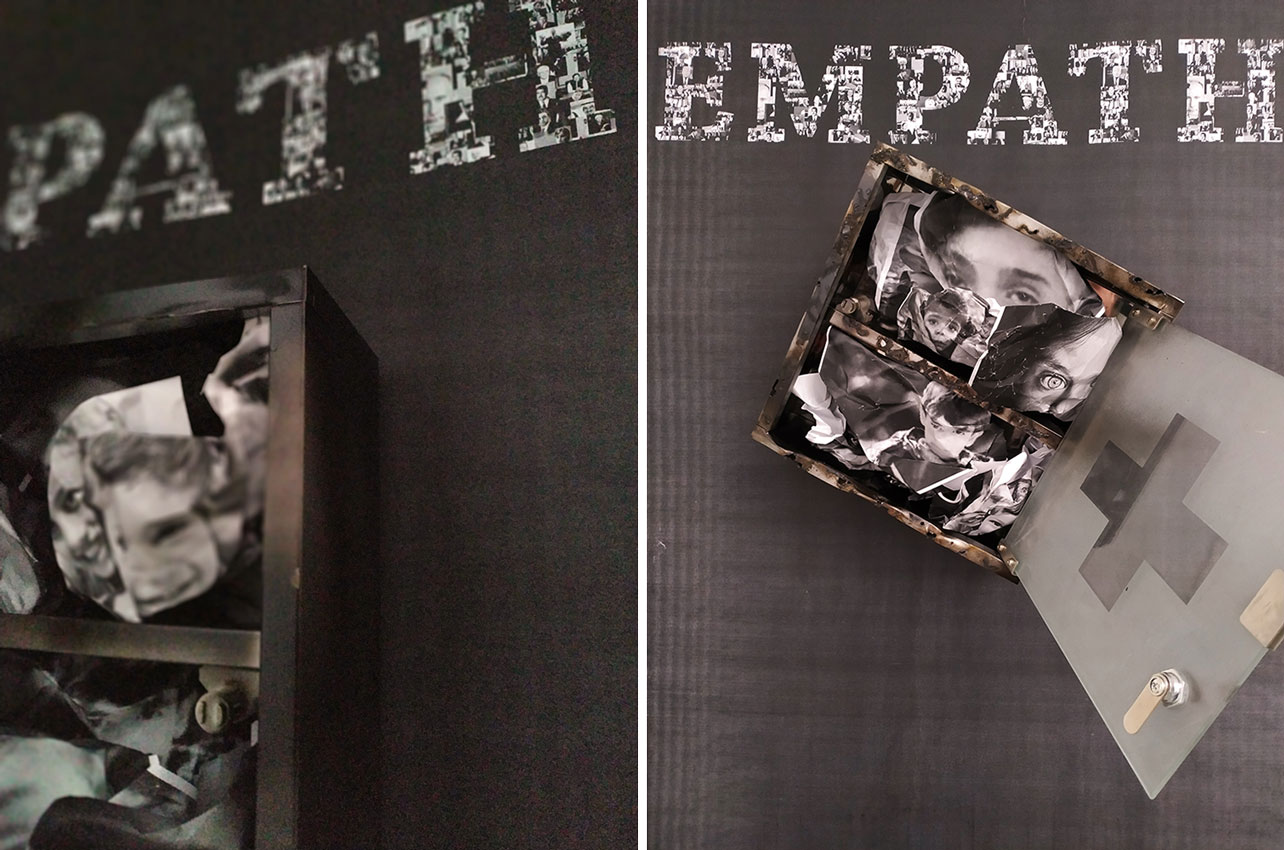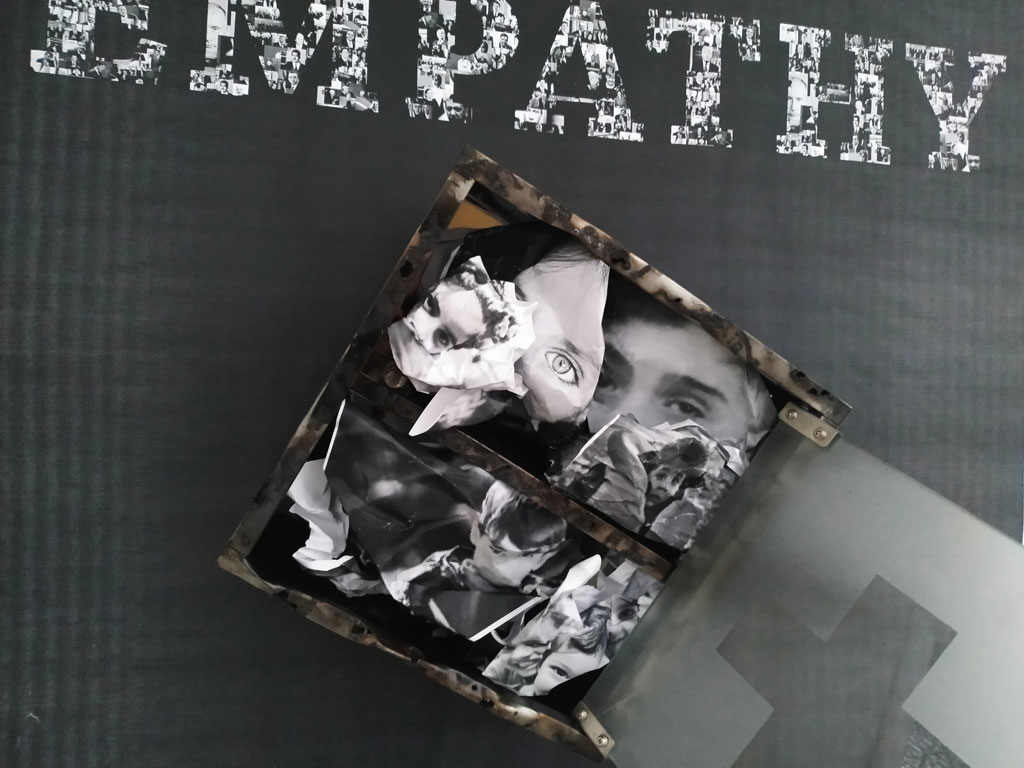NEW ARTWORKS: Ada Petranaki
 I have collaborated with Anta Petranaki twice in the last 5 years. What I appreciate deeply, besides her work which constantly changes, goes further and progress hav-ing a central axis that characterizes her, her attitude and calmness with which she treats her coworkers, is what makes her unique. Τhe Interview that follows, while it seems to have emerged from this difficult period for humanity, I had planned to do it on the occasion of her participation in the exhibition “Transmission grecque”, cu-rated by Maria Xypolopoulou and Laurent Quenehen in Paris, in March 2020, but it was moved due to circumstances. “I think that the key is within us, at the levels of empathy and reciprocity, both personally and collectively”, Ada says in the discussion between us and we completely agree with her.
I have collaborated with Anta Petranaki twice in the last 5 years. What I appreciate deeply, besides her work which constantly changes, goes further and progress hav-ing a central axis that characterizes her, her attitude and calmness with which she treats her coworkers, is what makes her unique. Τhe Interview that follows, while it seems to have emerged from this difficult period for humanity, I had planned to do it on the occasion of her participation in the exhibition “Transmission grecque”, cu-rated by Maria Xypolopoulou and Laurent Quenehen in Paris, in March 2020, but it was moved due to circumstances. “I think that the key is within us, at the levels of empathy and reciprocity, both personally and collectively”, Ada says in the discussion between us and we completely agree with her.
By Efi Michalarou
Photo: Ada Petranaki’s Archive
Mrs. Petranaki, as we know, your most recent work titled “Empathy” was created on the occasion of the modern Greek socio-political landscape. When and how it started?
Let me remind you that before the appearance of Covid 19 problem, what occupied Greek society intensively and for a long time was immigration. This was a problem that divided often our country. But regardless of our position on this, I believe that we must be sensitive to unaccompanied children, who may be the big victims. And while I was concerned for a long time about this issue, I was offered by the curators Maria Xypolopoulou and Laurent Quenehen to participate in the Greek-French exhibition “Transmission grecque” on the subject of presenting whatever we wish from the image of modern Greece in the French community. I saw an opportunity to present this issue through my work.
Why you have chosen to expose this project and essentially lay the groundwork for dialogue, which is the purpose?
Feeling frustrated by Europe’s awkward attitude and often by some countries refusal to accept to protect some young orphans, I wanted to create the project “Empathy” looking at the problem, the stiffness of the leaders and the value of emotional intelligence.
You consider this attitude to be accidental and innocent or is there a much bigger and unacknowledged problem behind this very serious issue, of an aging Europe who has collapsed financially and is finally asking for cheap labor? Does it look a bit like post-World War II Europe?
Probably with the interwar period. With a simple critical look I see that profit saving, which is the main goal worldwide, exhausted the mild margins that existed and now almost everyone dares to operate on the one-way street of extreme exploitation of the planet and humans. The crisis is deep and in many areas. But the stigma of guilt weighs heavily on Europe because its history has been identified with the leading struggles for social values and was overshadowed by Nazi brutality after World War II, which should establish its humanity once and for all and non-negotiable.
But also its current attitude towards a pandemic that plagues all its countries, isn’t it very harsh, selective and inhuman? What is your position as an artist on this attitude?
On the event of this pandemic the virus exposed the western world, all of us, in the choice of exaggeration, greed and competition for individual prosperity, which bypassed and often deconstructed basic collective structures and social values. So now we have seen, unfortunately, as a result of these chronic choices, the harsh, even inhuman consequences. But the collective trauma has enormous power and leads us to introspection, to self-examination and possibly to the reconsideration, along the way the timeless mapped by art, and the works of many artists. Because I believe greatly that art and especially contemporary artistic expression enhances the perception of collectivity and solidarity.
Let’s return to empathy, as it is the central problem of your work in recent years, but also a concept that increasingly concerns us deeply as a society, what does it mean for you and how do you deal with it through your work?
This notion of empathy is indeed central to the problematic of my work. I have been consciously engaged for at least the last three years. I think trying to understand others, to identify with them emotionally and psychologically, to put yourself in their souls and feel them, is very difficult and requires a lot of effort. It is difficult but also very important.
The installation you present in the exhibition “Transmission grecque” is of large scale, an element that characterizes your work. Which possibilities does the large scale offer you, with a constant color always black and what do these two elements represent for you?
I wanted to stay close to the character of my work in terms of black and large-scale installation, which I usually do, difficult thing when the project has to be moved abroad. With the very large scale and the black I usually try to approach the aesthetic categories of height, mathematics and perhaps potential, according to the Kantian approach, that refers philosophically to the uncanny, which is strange but also appealing. So, a large black print “hosted” the word EMPATHY, shaped by photo collages of world leaders and heads of states. A distressed metal pharmacy box, symbol of protection and care, filled with several crumpled photocopies falling to the floor, photos of those circulating in the press by “crumpled” children. A contradiction of reality and the few practical moves of Europe’s assistance so far towards both Greece that manages this issue almost alone but mainly towards the children who do not know the solidarity one would expect as a reflection of Western culture. In essence, this project is the third of a section dedicated to children, whether they are children of war or children of the third world or unaccompanied refugee children, etc. Children who are the most sensitive and defenseless part of the “cursed stock” according to the characterization of Georges Bataille. Temporarily, the “cursed stock” is expressed in anonymous daily human sacrifices. Sacrifice today is what happens to the people of third world poverty, wars, but as it turns out, our hard daily life.
“The limits, justice, punishment, sacrifice, solidarity… On the one hand the goods, the knowledge and progress of western culture. On the other hand the exaggeration, and greed, that often boomerangs. We realize this, if you will, much more now, with the virus event” you state emphatically, in support of this section. And we wonder, what is the semiotics of the box you use? The “Pandora’s box” or the “Danaida jar”? You refer to the house with the security that characterizes it, but in which it includes insecurity, confinement and loneliness? Do you think that now is our great opportunity to reverse the terms of the game as a society and to be saved or burned completely? Is it the beginning of a new better world or a dystopia that surpasses any science fiction scenario?
How to capture this moment of collective confinement… Mankind stares at Pandora’s cosmogonic box and hopes desperately the progress that so much expects to bring solutions, relieving all of us and especially the weak, with the solidarity that the chock of the current event prevails. Maybe this is our great opportunity. But anyway, I think that the key is within us, at the levels of empathy and reciprocity, both personally and collectively.
Info: Curators: Maria Xypolopoulou and Laurent Quénéhen, Aponia Centre d’art contemporain, 6_ Avenue Montrichard / Villiers sur Marne, Duration: 14/3-5/4/20, Days & Hours: Mon-Fri by appointment, Sat-Sun 15:00-19:00, http://www.aponia.fr
Download Greek version here.
First Publication: www.dreamideamachine.com
© Interview-Efi Michalarou


Right: Ada Petranaki, Empathy (detail), 2020, © Ada Petranaki, Courtesy the artist


